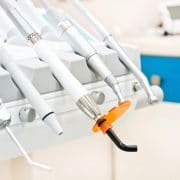Nowadays, patients can relax and go to a dental office. The name of an endodontic dentist doesn’t give the chills like in the early days. This has been made possible with the introduction of anesthetic. The purpose of sedation dentistry is to relax a patient during uncomfortable dental appointments or surgeries by using a combination of techniques like a general anesthetic or nitrous oxide (laughing gas). Thanks to sedation dentistry there’s no reason not to visit a dentist even for the worst of dental phobias.
The most common setting that practices sedation dentistry to perform regular dental procedures is the dental office. These anti-anxiety techniques can be used for any of the dental procedures depending on the needs and wants of the patient. The main aim is the management of the phobias or the fear so that individuals do not hesitate to go to a dental office and can receive the treatment that is necessary for them.
However, everyone cannot be given a sedation product. Few factors are most commonly considered by the orthodontic dentist. The physical and mental health of the patient, his or her’s overall health, conditions like hypertension, diabetes, respiratory disease and cardiac disease first need clearance by a physician. These conditions have to be addressed before giving any type of sedative. A dentist will take into account the entire medical history and physical health of the individual into account. He or she can also ask the patient to get a clearance from the physician.
Types of Dental Sedation
Enteral Sedation- Enteral sedation is the type of sedation that a patient takes in the form of a liquid or a pill that can be taken orally. Like local anesthetic, they are combined with nitrous oxide to relax the patient. It doesn’t knock them out completely. The patient may be awake during the procedure but she or he will not be nervous about the treatment.
- Laughing gas- Also called inhalation analgesia, laughing gas is the most common type of sedation technique practiced at the dental office. Nitrous oxide is also used to reduce pain while a woman is giving birth. According to the National Institute of Health (NIH), laughing gas does not knock out the patient completely but relaxes them so that they don’t experience anxiety during a dental appointment. It is provided in almost every dental office and is highly safe. Sometimes local anesthetic is mixed with nitrous oxide and injected into the patient. It helps the patient to reach a relaxed state. An added benefit is that the gas can also be introduced to the patient with the help of a machine to reduce the discomfort experienced by injections. They are consistently effective and practically painless.
- IV Sedation- Also called Intravenous IV sedation. They are a form of sedation that is directly injected to the vein of the patient. They help the dentists or surgeons to provide deeper sedation. The patient, however, is not unconscious but largely unaware of the ongoing procedure. It might also need a period of recovery after the patient leaves the dental office.
- General Anaesthetic- They provide the deepest form of sedation by making the patient completely asleep for the entire procedure. The process involved injecting drugs into the vein of the patient along with the inhalation of a gaseous anesthetic component. It requires a proper recovery period in the dental office itself before leaving.
Licensing and Training
Sedation dentistry is an important part of regular dentistry. If not administered properly, it creates havoc and a lot of other health issues, in some cases even death. While all the dentists are trained and qualified to give nitrous oxide but for other forms of sedation, specialized training is required. The training teaches the handling of emergency and other supplies. Most countries require clinics to hold a sedation license to offer the services required by patients lawfully. If the clinic does not hold the license, they make contracts with licensed physicians and outsource them perform the procedure whenever required.
Several associations have laid down the guidelines for administrating sedative and the procedure to be followed. Sedation dentistry plays a key role in keeping fear of letting go of the smile that you always coveted.
If you are looking for a dentist specializing in dental sedation, contact Cross Dental.





